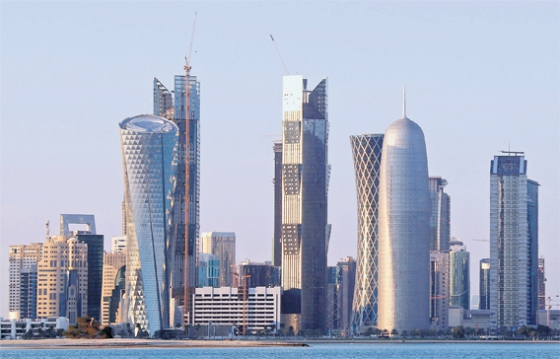Qatar’s upcoming public private partnerships (PPP) law will help to encourage increased private sector participation in the country’s construction market, a new report has shown.
According to BMI Research, the Qatari government’s plan to introduce a law governing public private partnerships (PPPs) is a positive signal for further opportunities to gain access to the country’s booming infrastructure market.
While a framework for the model’s application – supposedly due in late 2016 – has not yet been released, the researcher anticipates it will focus on harnessing private sector involvement into social infrastructure; specifically the healthcare sector, as a growing urban population and efforts to diversify the economy into knowledge-based sectors necessitates increased investment into such facilities.
“We are upbeat on the potential growth of Qatar’s PPP market, owing to budgetary pressures necessitating increased private sector involvement and favourable demand dynamics in the healthcare sector,” said BMI Research, a Fitch Group company.
With preparations for the 2022 FIFA World Cup taking the lion’s share of Qatar’s 2017 budget and the prolonged era of subdued commodity prices placing downward pressure on the country’s hydrocarbon-reliant economy, the government is looking to enlist the help of the private sector to deliver major projects in the healthcare sector, BMI said.
High birth rates, greater life expectancy and rising obesity are necessitating greater investment into the development of hospitals and clinics, to cater to the needs of the population and ensure social stability, while private sector expertise would help to ensure the timely delivery of such projects.
With the focus skewed towards Qatar’s hosting of the World Cup, as noted by BMI researchers earlier, many of the planned primary health facilities have missed their initial deadlines over the last few years, while almost two-thirds of planned spending on healthcare facilities was reduced in 2016 alone.
This “the first serious attempt” by the government to utilise the model outside of water and power sectors is likely to draw in investors owing to the market’s “robust” construction outlook providing ample potential for future investment, as well as its “attractive” risk profile.
Qatar is ranked second in BMI’s Infrastructure Risk/Reward Index for the Middle East and North Africa (Mena) region, bolstered by its “relaxed tax regime, political stability and openness to foreign participation in the economy.”
BMI also regards the government’s willingness to utilise private sector expertise to develop their future strategy and framework surrounding the use of PPPs as a positive move in establishing comprehensive framework.
An international law firm was appointed to assist in the development of both the PPP law and developing a pipeline of potential projects, while the government is currently looking for financial advisers for a pilot private sector participation project.
Zawya
01 February
























































